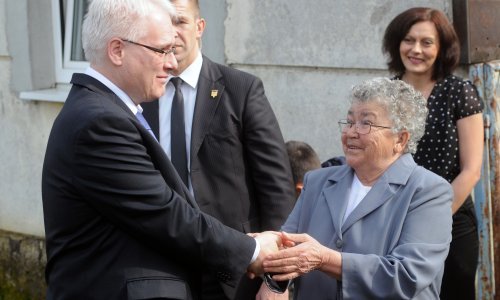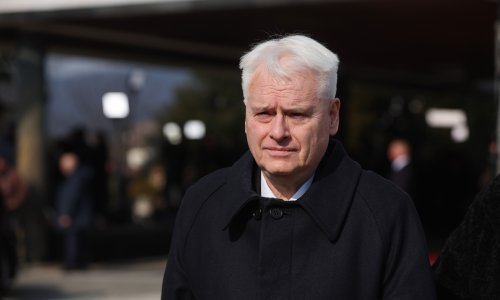Slovenian President Boris Pahor said on Thursday that both Slovenia and Croatia had become aware of the limitations of their Memorandum of Understanding concerning the settlement of the Ljubljanska Banka issue, adding that a solution to the issue could be reached at the Bank for International Settlements in Basel already this month or the next.
"It is our interest to reach a definitive settlement of the Ljubljanska Banka issue," Pahor said in an interview with the Croatian public television network HTV on Thursday evening at the end of the first day of his two-day official visit, his first since taking office.
"Your president and I have agreed today, and the meeting also involved the prime ministers of the two countries, that we will fully resolve this issue in Basel, possibly in May or June," he added.
Pahor said that he would visit Croatia again on July 1 to attend a celebration of its accession to the European Union, which will take place in Zagreb's main square Trg Bana Josipa Jelacica. "I think I will also take a few days off for a brief holiday on your lovely coast."
On the subject of protection of the Kranjska sausage and the Terrano wine, Pahor said that "these are not issues that would bother your president or me."
Slovenia and Croatia are each other's fourth largest trading partner, and after they reached an agreement on the border issue a new optimism has emerged in relations between the two countries and more than a quarter of all Slovenian investments abroad are in Croatia, he said.
"That means that Slovenian business people, who are very cautious investors, recognised Croatia as a very stable destination for their business plans," Pahor said.
The Slovenian president believes that once Croatia joins the EU, trade between the two countries and investments will increase. "I am confident that even more Slovenian enterprises will invest in Croatia and that many more enterprises from Croatia will invest in Slovenia. Today the Slovenian government has adopted several important decisions concerning financial consolidation, economic growth and privatisation of state companies, which could be an encouragement to Croatian entrepreneurs to invest in Slovenia," he said.
































